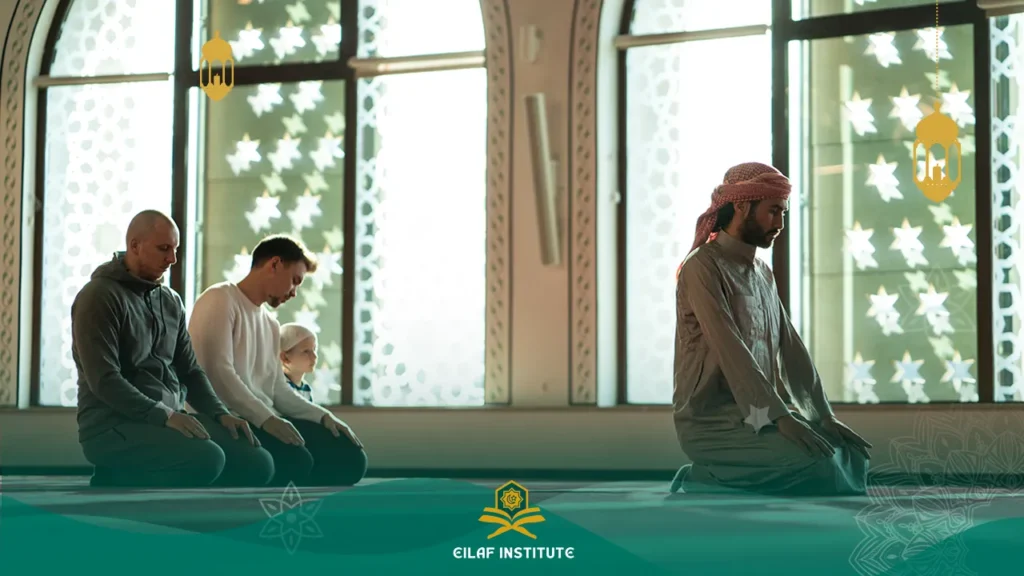Muslims must know the obligatory salah that must be performed every day. There are differences between the obligatory salah and the sunnah salah. The obligatory salah, Muslims must pray every day, and it is a sin if Muslims neglect or forget it. But sunnah salah is not obligatory to pray every day or after every salah; Muslims can pray it anytime. The five obligatory salah are one of the five pillars of Islam that a Muslim must do to become a believer and gain a lot of good deeds that help him to reach paradise in the afterlife.
What are Fard Prayers and Sunnah Prayers?
The obligatory prayers
The obligatory salah that Muslims must pray every day:
- Fajr
- Dhuhr
- Asr
- Maghrib
- Isha
Those five prayers are obligatory for all Muslims to pray; there are no excuses for not praying that salah because you can pray it every time and everywhere. If Muslims are sick, they can pray while sitting. If Muslims can’t sit, they can pray while lying in bed. If a Muslim can’t pray while lying down, they can pray using their eyes. So, there is no excuse for not praying in Islam; it is the only pillar that has no excuses, and all Muslims must do it every day.
Read also about : How to perform salah according to quran?
The Sunnah Salah (Nafl Salah)
There are many sunnah prayers that many Muslims think are obligatory, such as:
- Two rakats before Fajr
- Two rakats after Dhuhr
- Two rakats after Asr
- Two rakats after Isha
- Taraweeh
- Eid al-Fitr Salah
- Eid al-Adha Salah
- Tahajjud
All those salahs are sunnah salahs that many Muslims think are obligatory, which is wrong. The only obligatory salah is the five daily salah; all other salahs are sunnah that Muslims should pray to seek forgiveness from God and to accumulate good deeds and remove sins.
What is the difference between obligatory salah & sunnah prayers?
The difference between obligatory salah and sunnah prayers is that for obligatory salah, Muslims must pray it every time because it is one of the five pillars of Islam, and Muslims can’t miss it. Missing one prayer is a sin, so Muslims must take care of this point and must pray every salah in its time every day to seek forgiveness from God and to gain paradise in the afterlife.
The sunnah prayer is a non-obligatory salah that Muslims can choose to pray or not. Muslims pray nafl salah to gain more good deeds and to strengthen their connection with God. After praying the obligatory salah, praying two rakats aims to seek forgiveness from God. Some scholars say that nafl compensates for the missed obligatory salah, but Allah knows best.
Read also about : How Many Rakats Each Prayer?
Is it okay to just pray fard?
It isn’t sinful for Muslims to skip the sunnah salah because the goal of praying the nafl salah is to strengthen the connection between Muslims and God. If Muslims don’t pray nafl, it is not a sin, but all scholars prefer to pray it to seek forgiveness from God and to gain more deeds and remove sins that Muslims commit every day because people always make mistakes and seek forgiveness for them every day. So, nafl is good to remove sins.
Is it haram to pray Sunnah immediately after fard?
No, it is not haram to pray immediately after finishing the fard salah. It is makruh to pray immediately after the fard salah. A Muslim must take any action between the two salahs, like talking with someone, walking away, and returning to pray, to make a distinction between the two prayers and be ready to pray the nafl. Also, having the intention of praying the nafl to gain more good deeds and to strengthen the connection with God.
Is Dua recommended after fard prayer?
Muslims can make Dua anytime but it’s highly preferred and recommended to make dua after praying because at this time his prayers can be accepted. So muslims make dua after they finish the Salah wishing that their dua will be accepted.

